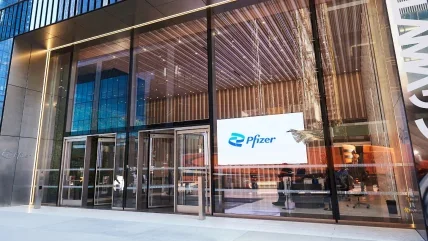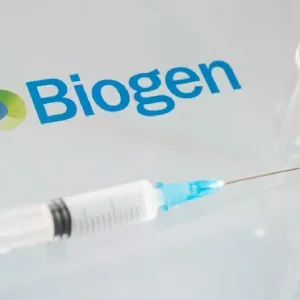
Pfizer and Takeda announced that the Phase 3 HD21 trial of additional Adcetris (brentuximab vedotin) combination in frontline Hodgkin lymphoma has shown improved patient outcomes.
Adcetris is an antibody-drug conjugate (ADC) which has received marketing approval in over 70 nations for the treatment of relapsed or refractory Hodgkin lymphoma and systemic anaplastic large cell lymphoma (sALCL).
The HD21 study assessed Adcetris alongside etoposide, cyclophosphamide, doxorubicin, dacarbazine, and dexamethasone (BrECADD) against the standard eBEACOPP regimen in newly diagnosed Stage 2b/3/4 classical Hodgkin lymphoma patients. eBEACOPP consists of escalated doses of bleomycin, etoposide, doxorubicin, cyclophosphamide, vincristine, procarbazine, prednisone.
The Adcetris combination demonstrated enhanced safety, evaluated through treatment-related morbidity (TRMB), and non-inferior progression-free survival (PFS).
At the four-year analysis, the findings indicated superior PFS and better tolerability for patients compared to the current standard regimen used in Europe.
Additionally, the trial found that the addition of ADC to the chemotherapy regimen improved the risk-to-benefit profile of the combination treatment. It maintained efficacy while lowering acute and long-lasting treatment-related adverse effects compared to the comparator arm.
The open-label study reached a preplanned three-year analysis milestone, where it successfully achieved its co-primary endpoints.
Takeda global oncology chief medical officer Awny Farajallah said: “In our ongoing effort to improve outcomes for patients with lymphoma, we’ve partnered with the GHSG on the HD21 study to deepen our understanding of how Adcetris could further benefit patients in need of new options.
“We are excited about the impact these results could have on patients with newly diagnosed Hodgkin lymphoma, potentially bringing them an additional ADCETRIS-based combination regimen that may significantly reduce side effects without compromising on efficacy.”
Takeda will handle regulatory submissions based on the HD21 study outside the US and Canada.
The antibody-drug conjugate is undergoing evaluation in over 70 clinical trials.
In a separate development, Pfizer announced longer-term follow-up results from the Phase 3 CROWN trial evaluating Lorbrena (lorlatinib) against Xalkori (crizotinib) in anaplastic lymphoma kinase (ALK)-positive advanced non-small cell lung cancer (NSCLC) patients.
The results showed that 60% of patients were alive without disease progression after five years.
It showed continued 81% reduction in risk of disease progression or death and 94% reduction in progression of brain metastases compared to Xalkori.






